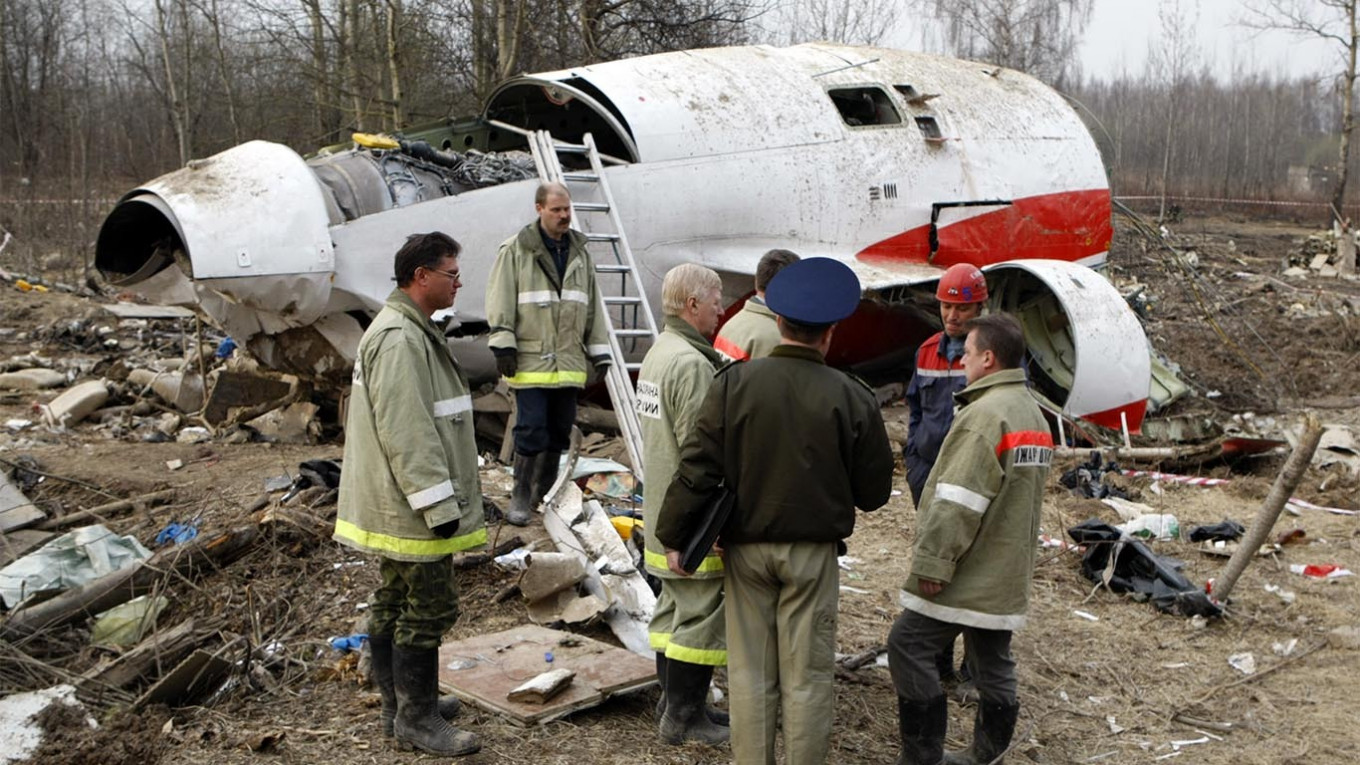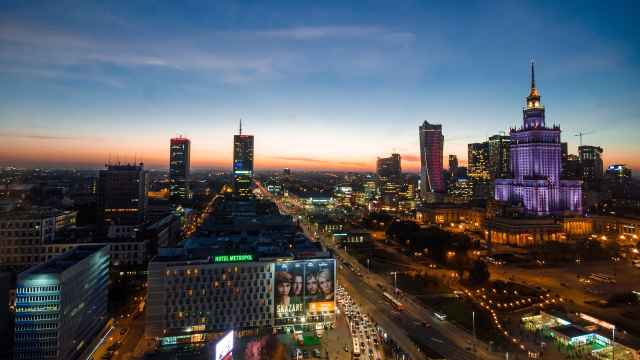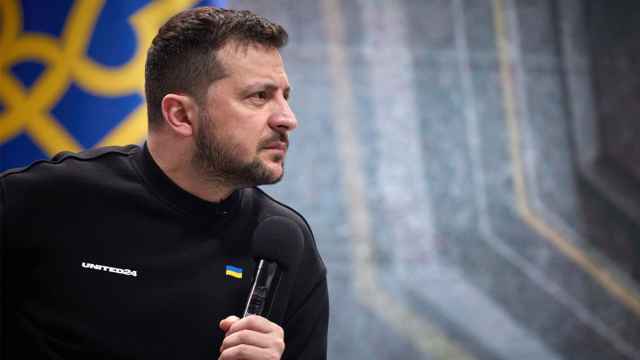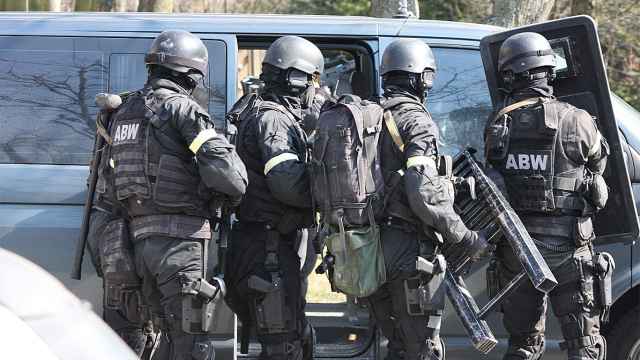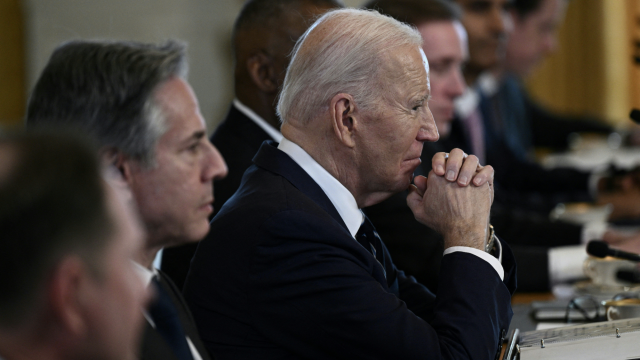Poland held a scaled-back memorial on Friday for the air crash that killed president Lech Kaczynski and dozens of others in Russia a decade ago, amid a lockdown to control coronavirus.
Prime Minister Mateusz Morawiecki called for a show of unity similar to that which brought the country together in 2010 to help get through the pandemic.
Only Jaroslaw Kaczynski, brother of the late president and today head of the ruling conservative party (PiS), Morawiecki and a handful of senior officials laid wreaths at the Warsaw monument for those who lost their lives on April 10, 2010.
A short prayer followed but with commemorations severely curtailed there were no speeches.
President Andrzej Duda laid flowers on Kaczynski's tomb at the Wawel royal castle in Krakow.
"It was a moment when time stopped," the prime minister tweeted.
"The cry that went up then still resonates. We got through this tragedy as a community. Today, in different circumstances, we also need to show unity."
By Friday morning Poland, under lockdown, had registered 5,742 novel coronavirus cases, including 175 dead.
In 2010, President Kaczynski and a senior delegation were heading to Smolensk to mark the murder of thousands of Poles by Soviet secret police at Katyn near Smolensk, in 1940.
Polish investigators blamed the crash on human error during bad weather, but some conservatives have not accepted the findings.
Duda told a reporter it was "difficult today to predict if the question would be resolved or not."
"We lack evidence. The wreck, although it belongs to Poland, and the black boxes, are still in Russia. What can you say?" Duda asked.
Debate over the cause of the crash has divided Poles with conservatives accusing Donald Tusk's liberal government of negligence in preparations for the presidential visit to Katyn and shortcomings in the investigation.
Warsaw announced it would not send an official delegation to Smolensk this year and accused Moscow of failing to answer questions that made it "impossible to organize the visit in line with security procedures." Moscow denied the charge.
A Message from The Moscow Times:
Dear readers,
We are facing unprecedented challenges. Russia's Prosecutor General's Office has designated The Moscow Times as an "undesirable" organization, criminalizing our work and putting our staff at risk of prosecution. This follows our earlier unjust labeling as a "foreign agent."
These actions are direct attempts to silence independent journalism in Russia. The authorities claim our work "discredits the decisions of the Russian leadership." We see things differently: we strive to provide accurate, unbiased reporting on Russia.
We, the journalists of The Moscow Times, refuse to be silenced. But to continue our work, we need your help.
Your support, no matter how small, makes a world of difference. If you can, please support us monthly starting from just $2. It's quick to set up, and every contribution makes a significant impact.
By supporting The Moscow Times, you're defending open, independent journalism in the face of repression. Thank you for standing with us.
Remind me later.


